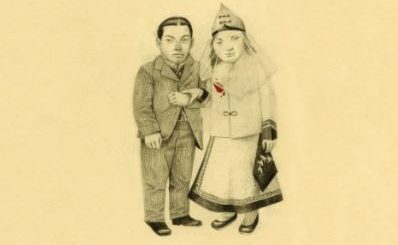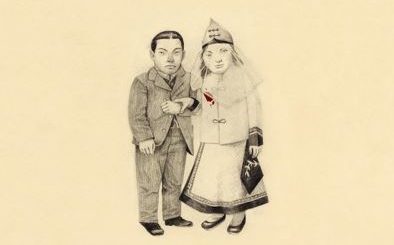The Rake’s Song by The Decemberists Lyrics Meaning – A Lyrical Dive into Dark Narratives
Lyrics
In the summer of my twenty-first year
And the bells rang for our wedding
Only now do I remember it clear
Alright, alright, alright
No more a rake and no more a bachelor
I was wedded and it whetted my thirst
Until her womb start spilling out babies
Only then did I reckon my curse
Alright, alright, alright
Alright, alright, alright
First came Isaiah with his crinkled little fingers
Then came Charlotte and that wretched girl Dawn
Ugly Myfanwy died on delivery
Mercifully taking her mother along
Alright, alright, alright
What can one do when one is widower
Shamefully saddled with three little pests
All that I wanted was the freedom of a new life
So my burden I began to divest
Alright, alright, alright
Alright, alright, alright
Charlotte I buried after feeding her foxglove
Dawn was easy, she was drowned in the bath
Isaiah fought but was easily bested
Burned his body for incurring my wrath
Alright, alright, alright
And that’s how I came your humble narrator
To be living so easy and free
Expect you think that I should be haunted
But it never really bothers me
Alright, alright, alright
Alright, alright, alright
The Decemberists, known for their storytelling prowess, craft songs that often intertwine the fabric of folklore with contemporary commentary. ‘The Rake’s Song’, a standout track from their 2009 album ‘The Hazards of Love’, is a gripping example of their musical narrative capacity. The song unfolds with grim lyrical brushstrokes, painting a portrait of a man who transforms from a carefree bachelor to a sinister widower.
As listeners, we are taken on a chilling journey through the mind of a character who refers to himself with a chilling nonchalance as a ‘rake’ and ‘your humble narrator’. His tale is one of heartache, freedom, and morbid actions, leaving an unshakeable coldness in its wake. Below, we dissect the song’s haunting narrative, seeking out the truth lodged within its melodic confessions.
From Matrimony to Melancholy: The Rake’s Woeful Wedlock
The song’s opening lines set a stage where matrimony’s bells chime not with joy, but with an ominous foreshadowing of the events to unfold. From the celebration of union, our narrator quickly transitions into disillusionment, as the responsibilities and consequences of marriage and fatherhood seem to stifle his thirst for freedom. The euphemistic ‘curse’ that his offspring represent subtly begins to outline the psychological backbone of his subsequent actions.
The rake’s initial perception of marriage as an avenue to quench a metaphorical thirst suggests the grim reality of unpreparedness for the true commitments of wedded life. These lines serve as a prelude to the unraveling of his carefully curated world, as the joy he expected from marriage is supplanted by a deep-seated resentment towards his own progeny.
Grim Lullabies: Death as a Macabre Mother’s Milk
With an almost fairy tale-like quality, The Decemberists introduce us to a series of ill-fated children, each meeting an untimely end. The death of each child, while handled with a grotesque sense of nonchalance, provides a stark reflection on the rake’s character, as he views his actions as a freeing force rather than murderous misdeeds. The songwriters expertly craft a narrative that both horrifies and fascinates, employing an array of botanical and domestic imagery in a twisted lullaby.
The metaphorical use of ‘foxglove’ – a beautiful yet poisonous plant – in the murder of Charlotte and the coldly practical drowning of Dawn highlight the narrator’s chilling detachment and rationalization. The mention of ‘feeding’ the child, a typically nurturing act, juxtaposed with the delivery of death, only adds to the narrative’s disturbing tone.
A Mind Unhaunted: The Psychopathy of a Protagonist
Perhaps the most unsettling aspect of ‘The Rake’s Song’ is the protagonist’s complete lack of remorse. A haunting refrain of ‘Alright, alright, alright’ punctuates the tale like a chilling mantra of self-reassurance. He acknowledges the expectation of being haunted, yet he boldly claims a peace unmarred by guilt, leading us to question the depth of his moral void.
As with many brilliant works of musical narrative, listeners are forced into the uncomfortable position of empathizing with an unreliable narrator whose humanity seems to have been eroded by his desires. The absence of remorse suggests a sociopathic disconnect, which, paired with the song’s catchy folk-rock tune, creates a jarring dissonance between content and form.
The Curse of Freedom and the Rake’s Sinister Liberation
Freedom in ‘The Rake’s Song’ is portrayed not as an inherent right but as something to be seized, irrespective of the moral cost. The narrator’s view of his children as obstacles to be ‘divested’ reveals his ruthlessly utilitarian perspective on life. It’s a shocking inversion of the parental instinct to protect and an insight into the narrator’s twisted justification for his crimes.
The pursuit of a ‘new life’ irrespective of the consequences to others offers a grim commentary on selfishness and its potential to warp the human conscience. It forces us to examine the lengths to which one might go to secure their own happiness and the dark side of the human capacity for rationalization.
The Harrowing Chorus: Crafting Catharsis through Repetition
The repeating line ‘Alright, alright, alright’ serves as a callous refrain, mirroring the narrator’s attempts to normalize his actions. With each repetition, the song delves deeper into the psyche of the man who sees his deeds as necessary steps towards his self-prescribed liberty. This hypnotic repetition becomes the perfect juxtaposition to the horrific story being told, creating an unforgettable melodic hook that belies its macabre message.
In this way, the chorus serves as a musical embodiment of the rake’s internal monologue, a chilling chorus to a story that reads like a confession but rings with the emptiness of a heart unperturbed by conscience. Such lines prove to be the most memorable, as they encapsulate the song’s dark heart and stay with listeners long after the final chords fade.








